MEDIA: Investing with Māori is a long-term choice for sustainable finance, panel says
Written by Greg Hurrell, originally posted on www.businessdesk.co.nz
Māori are not broken, it's the financial system that needs to be re-engineered so that both they and other indigenous peoples can open up to investment, fund managers and investors have heard. A panel discussion at the Responsible Investment Association Australasia's (RIAA) conference on Wednesday took a look at the Māori perspective on sustainable investment.
Jo Kelly, chief executive at Toitū Tahua – Centre for Sustainable Finance, said the finance sector needed to be overhauled to respond to the challenge of decarbonisation. There were only eight years remaining to halve New Zealand’s greenhouse gas emissions, she said. “All of us will be living with the effects of the investment decisions made today for many years to come.” Any meaningful delivery would rely on partnerships and collaboration, including with indigenous peoples around the world, she said. “It’s good to be an investor curious about te ao Māori, or at least not closed to it.” That is becoming a mainstream view.
The External Reporting Board (XRB) sees Māori business values as showing the way ahead to sustainable finance and business reporting. It has recently launched a consultation process with Māori, as a first step towards developing voluntary non-financial reporting standards.
The RIAA has led the development of a voluntary stewardship code to set ethical investment standards, with seven founding signatories, including the NZ Super Fund.
According to Te Puni Kōkiri, the government’s principal policy advisor on Māori wellbeing and development, using Stats NZ data published in September, self-identified Māori enterprises and authorities have $15 billion of equity and $6.6b of liabilities. Other surveys use different classification methods based on businesses whose owners have Māori ethnicity but without any self-identification requirements.
A 2018 report, from consultancy Business and Economic Research Limited, into the Māori economy gave a total asset-base estimate of $68.7b.
Westpac's Fonteyn Moses-Te Kani says the system was designed for individual values, rather than that of the collective. A more collective approach Fonteyn Moses-Te Kani, head of Māori, iwi, inclusion and diversity at Westpac, said change was needed to enable Māori to be better involved in the economy. She had discussed the investment environment not only with Māori but with Indigenous Australians and First Nation peoples in Canada, who all held plenty of unproductive and undeveloped land. "They said, 'You know, we're looking for access to finance because we're asset rich, but we don't trust the system to enable us to engage in a way we don't lose our history.'" That meant choosing not to seek investment because they feared it could ultimately lead to the loss of land, she said. However, ethical investment principles such as the RIAA code could help overcome those barriers. "That's the part of it I find exciting." Moses-Te Kani said Westpac had a very strong strategy for sustainability and understood the importance of sustaining life and land. However, she did describe the traditional financial system as institutionally racist. “I always say that our people are not broken, the system is, because the system was designed for individual values, rather than that of the collective,” Moses-Te Kani said.
It wasn’t that the entire financial system needed to change, just a part of it – to create a space and ability for indigenous peoples to engage, Moses-Te Kani said.
Investing with Māori businesses Te Pai Roa Tika is a Northland-based impact-investment model centred on tikanga Māori. Its CEO, Jodi Hayward, said it described itself as an impact investor in the indigenous sector. “We work alongside Māori to bring iwi, asset-holding companies, whoever shows up and is interested in bringing investment into our region.” Its business model differed from the traditional framework as it worked alongside the beneficiaries of its investments. But that did not mean Te Pai Roa Tiki sat outside the finance sector. “Just because you want to do good, doesn’t mean you don’t like money,” she said.
Hayward commended the RIAA for launching its stewardship code for responsible investment. It was the first time she had seen finance documentation that looked to set national standards around intergenerational thinking. Toitū Tahua's Kelly said there were trillions of investment dollars around the world committed toward net-zero 2050 goals. She asked how some of that money could be partnered with Māori to drive local climate solutions.
Hayward said she struggled with climate change and adaptation as it related to Māori investment. "I don't believe that Māori should have to come up with solutions to things that we haven't caused ourselves." However, Māori did have its experts and knew how to look after the land, meaning investment would find its way to sustainable outcomes, she said. "If you're a brave investor, you'll invest in that relationship, stay in their lane with finance and technical capability, respect the mātauranga, or the knowledge of those that look after whenua, and find a way to partner in a way that is mutually respectful."
Moses-Te Kani had advice for anyone wanting to invest with Māori entities: don’t treat it as a simple transaction or they would likely respond in kind. If investors treated the relationship as a long-term partnership, they would gain insights into what Māori were trying to achieve. Moses-Te Kani gave the example of a forestry block that had a 100-year plan. "So, everyone goes, 'Why do you do a 100-year plan?' But that's only four rotations on the forestry block." That was the lifespan of just two generations of people, she added.
